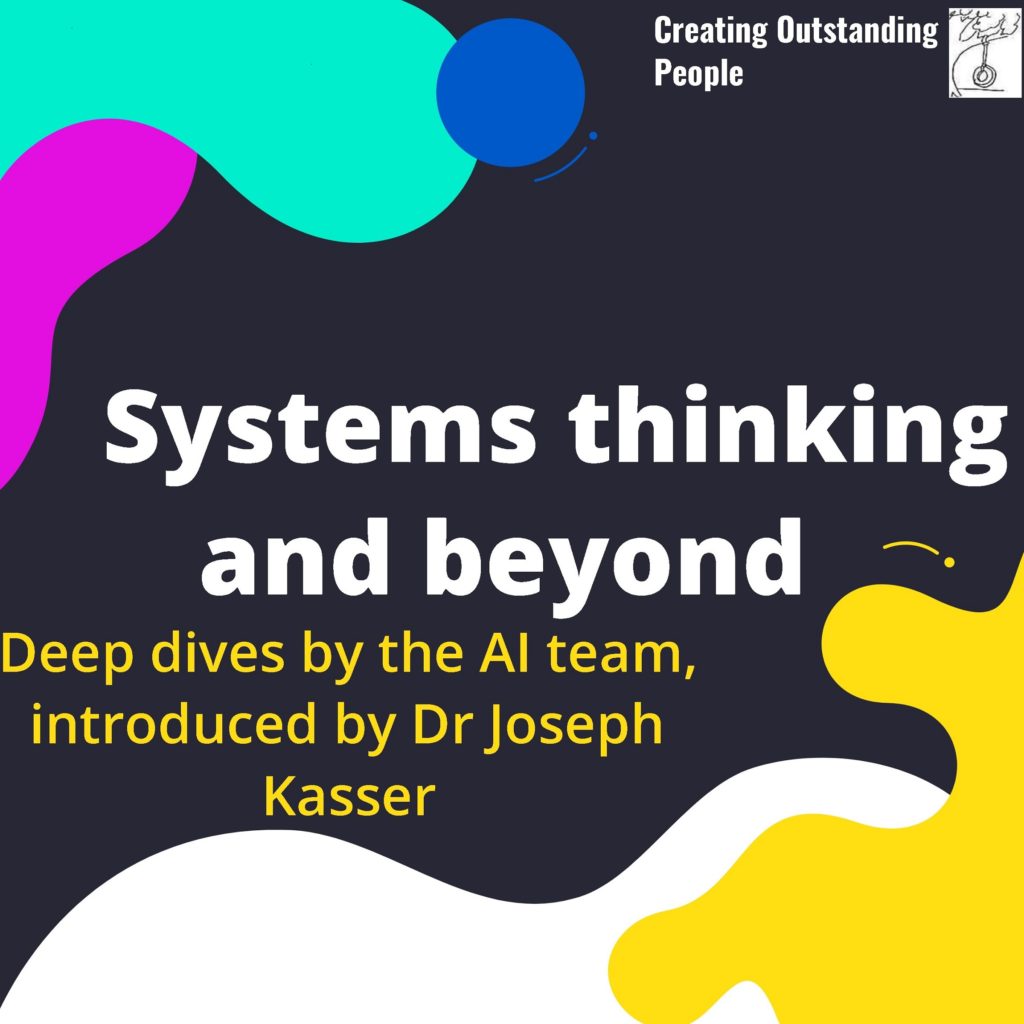-
I'm normally on line Thursdays at 9.30 pm London local time and 7 pm New York local time in the OASIS café at Zoom Meeting (office hours for drop in chats)
-
Meeting ID: 873 4055 1993
Passcode: 557756 -

Podcasts on systems engineering and systems thinking -
NEW WEBINAR Overcoming the top three obstacles faced by young project managers in their first few years
From obstacles to triumphs
From obstacles to triumphs: A project manager’s early career roadmap
-
-
If you are even thinking about enrolling in training, you need to watch my YouTube video Why selecting the wrong training course could cost you $1000s
Blog Archives
Seven principles for systems engineered solution systems
Our AI team takes a deep dive into a 2011 INCOSE symposium paper which argues that systems engineering lacks a unifying theory. The authors, Dr Joseph Kasser and Prof Derek Hitchins, identify disparate camps within the field, characterized by differing focuses on processes, problems, or the discipline itself. They propose a solution: seven principles for designing “solution systems,” aiming to improve systems engineering practice by focusing on the outcome rather than the process. These principles … Continue reading
Comments Off on Seven principles for systems engineered solution systems
Stakeholder engineering: principles and practices
The AI team take a deep dive into an excerpt from Tom Gilb’s updated book on stakeholder engineering, focusing on a method for systematically identifying, analyzing, and managing stakeholders and their requirements throughout a system’s lifecycle. The author emphasizes a unique definition of “stakeholder,” including non-human entities, and advocates for continuous stakeholder discovery and continuous analysis of their evolving needs. The text details methods for eliciting and prioritizing stakeholder requirements, utilizing quantitative techniques and tools … Continue reading
Comments Off on Stakeholder engineering: principles and practices
Systems engineering – A 21st century systems methodology
The AI team take a deep dive into Derek K. Hitchins’ book, “Systems Engineering: A 21st Century Systems Methodology.” It comprehensively explores systems engineering principles and their application to diverse fields. The book uses a holistic approach, emphasizing the importance of understanding the interactions between system components and their environment. It covers various methodologies, including the Generic Reference Model (GRM) for system design and the Rigorous Soft Method (RSM) for problem-solving. The text also examines the role of human … Continue reading
Comments Off on Systems engineering – A 21st century systems methodology
Systems engineers are from Mars; software engineers are from Venus
The AI team take a deep dive into a 2000 paper, presented at the 13th International Conference on Software & Systems Engineering and their Applications, which explores the communication breakdown between systems and software engineers. The authors argue that this lack of communication, stemming from differing training, backgrounds, and interpretations of terminology, significantly contributes to project failures. They analyze the distinct perspectives and methodologies of each engineering discipline, highlighting misunderstandings around concepts like “component” and … Continue reading
Comments Off on Systems engineers are from Mars; software engineers are from Venus
Systems Integration: A Complex Challenge
The AI team take a deep dive into David Hetherington’s webinar presentation on systems integration made in the INCOSE Sector III Speaker Series in December 2024 – Systems Integration: A Complex Challenge. The presentation details the complexities of integrating multiple systems from various suppliers. He contrasts two organizational types: “Marching Band” (highly structured, predictable) and “Goat Rodeo” (chaotic, unpredictable), offering strategies for success in each. The presentation uses case studies (a jackup rig and an infotainment system) to illustrate common pitfalls like … Continue reading
Comments Off on Systems Integration: A Complex Challenge
